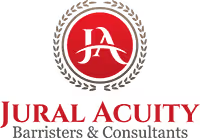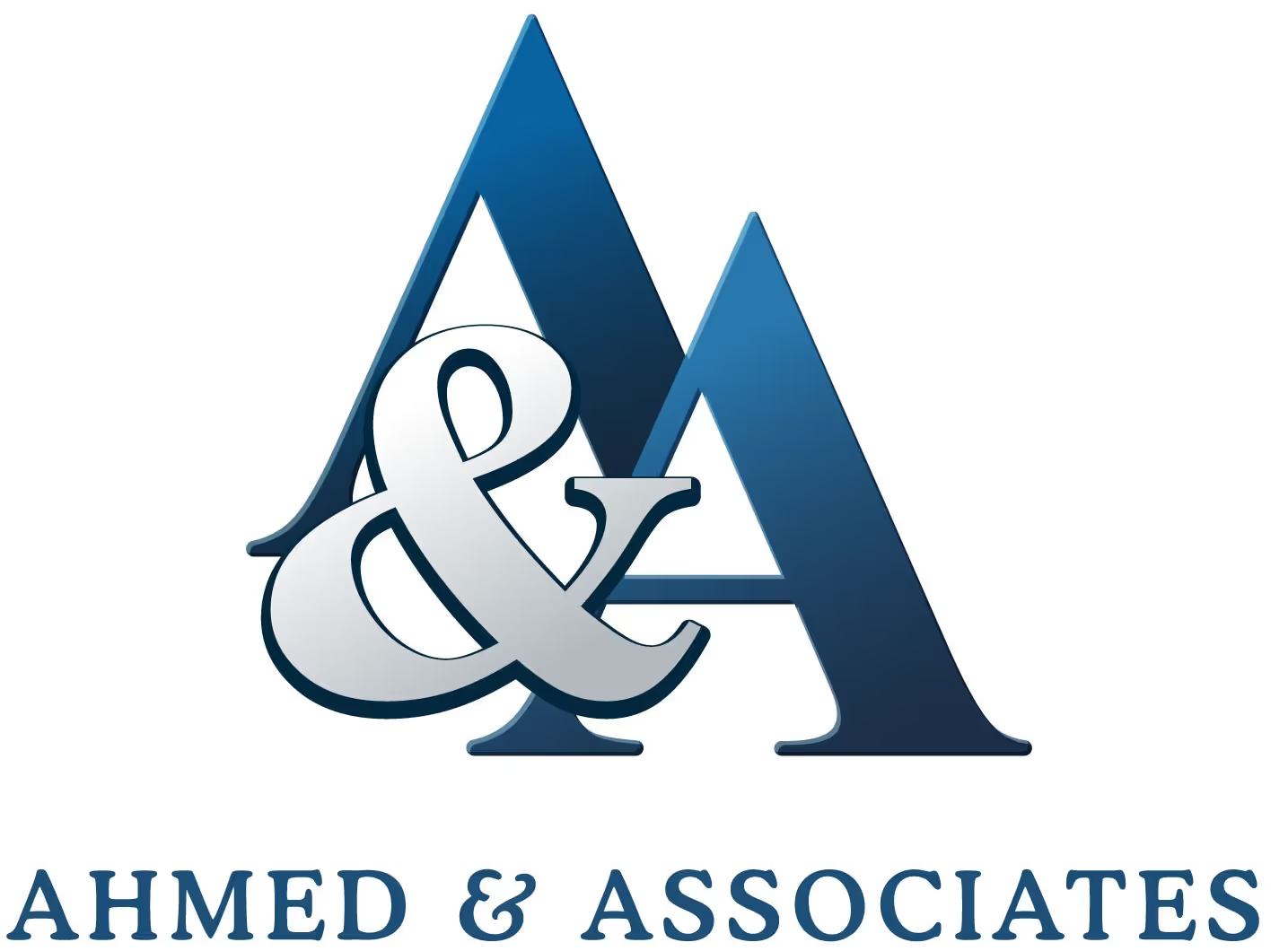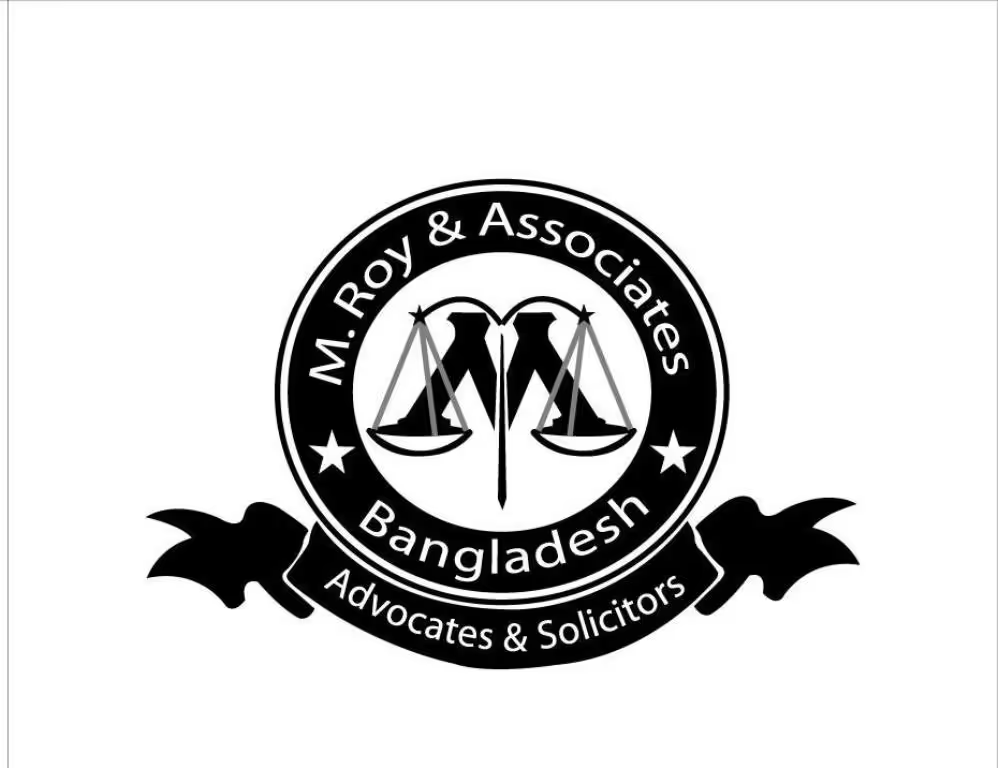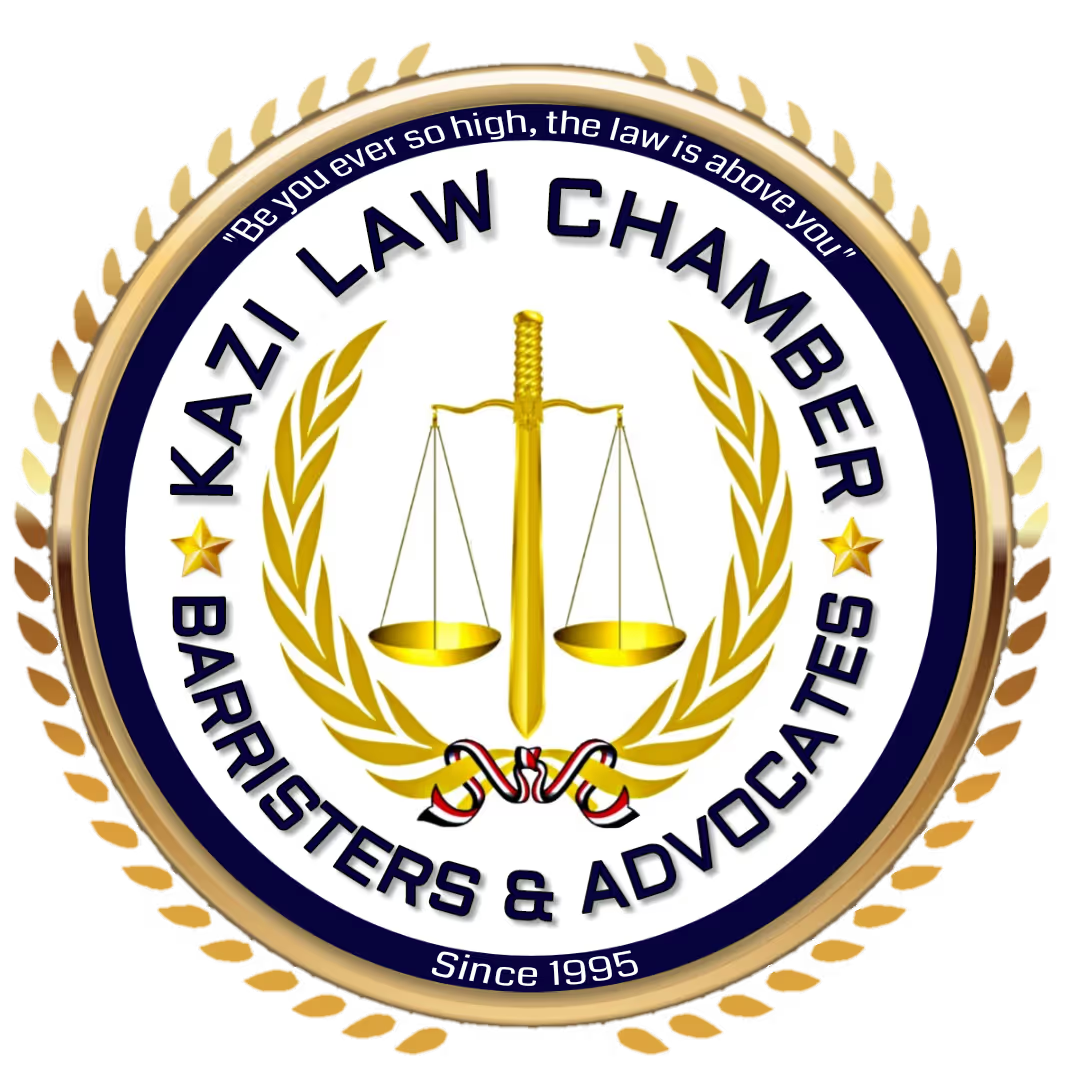Top-Rated Debt Collection Agency in Bangladesh
Your trusted debt collection agency in Bangladesh. Submit your claim for fast, dependable recovery. Dive into our comprehensive guide for local debt collection insights and tactics.






The ultimate guide about debt collection in Bangladesh
Why you can trust this guide
At Debitura, we uphold the highest standards of impartiality and precision to bring you comprehensive guides on international debt collection. Our editorial team boasts over a decade of specialized experience in this domain.
Questions or feedback? Email us at contact@debitura.com — we update this guide based on your input.
Debitura By the Numbers:
- 10+ years focused on international debt collection
- 100+ local attorneys in our partner network
- $100M+ recovered for clients in the last 18 months
- 4.9/5 average rating from 621 reviews
Expert-led, locally validated
Written by Robin Tam (16 years in global B2B debt recovery). Every page is reviewed by top local attorneys to ensure legal accuracy and practical steps you can use.
Contributing local experts:
Last updated:
Tackling debt collection in Bangladesh can feel overwhelming, whether the hurdles emerge domestically or internationally. Enter Debitura—your key to navigating these complexities, blending vast global knowledge with local expertise. Explore our guide to equip yourself with potent tools for successful debt recovery in Bangladesh.
Exploring the Crucial Participants in Bangladesh's Debt Recovery System
In the complex choreography of Bangladesh's debt recovery, it's essential to grasp the individual roles and responsibilities of prominent participants. Agencies, bailiffs, and solicitors each contribute uniquely within the rigorous legal context of recovering unsettled debts in Bangladesh.
Role of Debt Collection Agencies in Bangladesh
In Bangladesh, debt collection agencies are pivotal in the early phases of debt recovery, acting as mediators to recuperate debts without entering the courtroom. Engaged primarily before litigation becomes necessary, these agencies embark on a methodical approach encompassing email correspondence, phone conversations, and sending letters, aiming for a compliant resolution. A cornerstone of their operation is adherence to the local regulations that safeguard consumer rights by prohibiting coercive collection practices. Agencies such as Cedar Financial and MNS Credit Management highlight the ethical dimension essential in this field, ensuring that practices don't merely comply with local laws but also respect the debtor's dignity. Creditors typically turn to these agencies when initial self-led recovery attempts fail, relying on the agencies' nuanced understanding of the Bangladeshi debt landscape. While effective in extrajudicial recoveries, these agencies' capabilities are bounded, necessitating legal avenues or specialized entities for more complex cases.
Lawyers in Bangladesh
In the realm of debt recovery in Bangladesh, lawyers play a pivotal role, especially when disputes transition into the judicial arena. The involvement of a legal professional typically becomes necessary when amicable collection efforts falter and legal action is the next logical step. Lawyers in Bangladesh are instrumental in drafting and filing necessary legal documents, providing representation in court, and advising on the legal nuances specific to debt recovery. Their tasks include negotiating settlements, presenting evidence, and advocating for the creditor’s interests. Moreover, their intricate knowledge of the Bangladeshi legal system, including the Money Loan Court Act-2003 and the Artha Rin Adalat (the courts designated for loan recovery), equips them to efficiently navigate the complexities of judicial proceedings. Employing a lawyer at the right juncture can significantly enhance the prospects of successful debt recovery.
The Role of Bailiffs in Bangladesh
Bailiffs, also known as Enforcement Agents in Bangladesh, are pivotal in executing court orders related to debt collection. They are authorized to enter premises, seize assets, and even handle evictions, underlining their integral role in ensuring compliance with financial judgements. Prior to invoking a bailiff's involvement, a creditor must secure a court order, affirming that the debtor has defaulted under the pronounced judgement. Bailiffs engage in a variety of tasks including property evaluation, asset seizure, and, in certain cases, auctioning off these assets to settle debts. Their actions are governed by strict legal frameworks to ensure fairness and respect towards the debtor's rights, while efficiently upholding the creditor's interests.
The initiation of bailiff engagement typically follows unsuccessful voluntary compliance by the debtor, marking a transition into direct legal enforcement of debt recovery. This underscores the importance of bailiff services in upholding the efficacy of Bangladesh's judicial system in debt collection matters. Through their legally vested powers, bailiffs execute pivotal functions such as asset evaluation, peaceful entry for asset seizure - ensuring certain exemptions for essential items, and ultimately, the facilitation of auction processes to realize owed amounts. This tightly regulated operation helps maintain a delicate balance between recovering creditors' dues and safeguarding debtors' fundamental rights.
Navigating Debt Collection Legislation in Bangladesh
Grasping the intricate legal landscape for successful debt recovery in Bangladesh is crucial. Such understanding fosters not only efficient debt collection, but also supports the vital tenets of fairness and trust in business procedures.
The Regulatory Environment and Civil Court System in Bangladesh
The civil court system in Bangladesh is a cornerstone of its judicial landscape, designed to handle a myriad of civil cases and disputes. This hierarchical system ensures the effective administration of justice.
- Supreme Court: At the pinnacle, the Supreme Court of Bangladesh is divided into the Appellate Division and the High Court Division, dealing with appeals, civil, criminal, constitutional, and special statutory jurisdiction.
- Subordinate Courts: Below the High Court Division lie the ordinary civil courts, including the Court of District Judge and the Court of Additional District Judge, which handle civil cases with varying financial jurisdictions.
- Specialized Tribunals and Courts: Apart from the conventional civil courts, specialized tribunals like the Money Loan Court (Artha Rin Adalat) specifically address loan recovery and financial disputes, streamlining the recovery process.
In conclusion, the structured hierarchy of courts in Bangladesh, from the supreme level down to specialized tribunals, is designed to cover a comprehensive range of civil disputes. This system provides a well-defined path for judicial redress and debt recovery, essential for maintaining the rule of law and economic stability in the country.
Key Legislation Impacting Debt Collection in Bangladesh
In Bangladesh, debt collection and recovery are governed by a series of laws and regulations designed to balance the rights of creditors with those of debtors. Understanding this legal framework is crucial for anyone engaging in debt collection activities within the country.
- The Money Loan Court Act-2003: Specifically designed to address challenges faced by banks and financial institutions in recovering non-performing loans. This Act outlines court setup, jurisdiction, filing procedures, and execution among its key features.
- The Contract Act, 1872: This Act provides the legal basis for all contracts, including those related to debt obligations. It addresses payment appropriations when a debtor has not specified which debt a payment is for, allowing the creditor discretion in applying payments to any lawful debt due.
- The Bangladesh Debt Settlement Act, 1989: Aimed at protecting farmers from burdensome debts to moneylenders, this Act encompasses provisions for debt settlement and emphasizes the supremacy of its provisions over other laws in case of annulled sales of indebted land.
Thoroughly understanding these laws is indispensable for effective debt collection in Bangladesh. Whether pursuing amicable collection efforts or resorting to judicial proceedings, adherence to the legal framework ensures not only compliance but also a higher likelihood of successful debt recovery. For international creditors, partnering with experienced local agencies familiar with Bangladesh's legal landscape can greatly enhance the effectiveness of their collection efforts.
Consumer Protection from Unfair Collection Practices in Bangladesh
In Bangladesh, consumer rights during the debt collection process are safeguarded through a range of laws and principles that stress ethical conduct and legal compliance by collection agencies.
- The Money Loan Court Act-2003 governs the recovery of loans, emphasizing fair practices in the litigation process and providing a specific legal framework for the collection of debts.
- Under the Contract Act, 1872, appropriation of payments ensures creditors apply payments to lawful debts, potentially reducing unfair allocation of partial payments.
- The Bangladesh Debt Settlement Act, 1989 protects farmers from falling into debt traps, illustrating the government's stance on preventing exploitative debt collection practices.
- Licensing requirements for debt collection agencies ensure that firms like Cedar Financial and MNS Credit Management Group operate ethically, adhering to Bangladesh's legal and procedural standards.
- The structured court system, including the hierarchy specified for debt recovery (e.g., Artha Rin Adalat for loan recovery), ensures procedural correctness and consumer protection throughout the judicial collection process.
Consumer protection in Bangladesh focuses on creating a fair and transparent debt collection ecosystem. Established laws and regulatory requirements prioritize the rights of consumers, ensuring they are treated justly during the debt recovery process and safeguarded against unfair collection practices.
Amicable Debt Collection in Bangladesh
Embark on a comprehensive breakdown of amicable, or pre-legal, debt collection in Bangladesh. Designed to be less intricate and faster than legal alternatives, it often falls into the hands of a dedicated debt collection agency. Learn the steps, strategies, and considerations requisite for proficient management of this process.
- Use of Local Agencies: Local debt collection agencies with a commission rate of around 19.5% are commonly used.
- Statute of Limitations: Time frame for commencing debt recovery actions ranges from 1 to 3 years as per the Limitation Act of 1908.
- Court Structure Awareness: Understanding the hierarchical court system aids in a smooth transition from amicable to judicial recovery if needed.
- Legislative Framework: Familiarity with laws such as The Contract Act, 1872, aids in legal compliance during debt recovery.
- Fees and Interest Rates: Negotiation skills influence recovery of fees and interest rates permissible under the Court-fees Act of 1870.
- Transition to Legal Actions: Knowing when to shift from amicable to legal action requires strategic planning and legal understanding.
- Consumer Protection Laws: Ethical practices in line with consumer protection laws are essential for successful recovery.
- Cost-Effectiveness and Speed: Amicable recovery is generally quicker and more cost-effective, with agencies often working on a "No Win, No Fee" basis.
Navigating Amicable Debt Collection in Bangladesh
In the landscape of debt recovery, the amicable collection approaches financial obligations with a harmonious strategy, prioritizing mutual respect, and understanding between the creditor and the debtor. This technique not only preserves the sanctity of business relationships but also endeavors to find a balanced resolution that respects the financial realities of the debtor. It avoids the adversarial tone of legal proceedings, aiming to resolve matters amicably before escalating to more formal methods.
For businesses operating in Bangladesh, starting with an amicable approach is advisable for non-disputed claims or those without intricate legal entanglements. This method is both time-efficient and cost-effective, potentially saving resources that might otherwise be spent in prolonged legal battles.
The Collection Agency's Role in Amicable Debt Recovery in Bangladesh
In Bangladesh, specialized collection agencies play a crucial role in the amicable recovery process. Agencies like Debitura, leveraging a decade of experience, adopt a strategic approach beginning with the precise identification of debts and subsequent amicable negotiations. Our detachment from personal stakes in the matter often leads to a more objective and, therefore, successful negotiation process. Debitura employs experts well-acquainted with local customs, language, and legal nuances, ensuring a culturally and legally respectful approach to debt recovery.
Benefits of Amicable Debt Resolution
Engaging in amicable collection benefits all parties involved. Creditors are spared the burden of legal fees and the potential damage to important commercial relationships. Debtors are offered repayment terms that recognize their financial situation, which often results in quicker debt resolution. This compassionate approach fosters goodwill, potentially opening doors to future business opportunities once the current financial difficulties are resolved.
Transitioning from Amicable to Legal Collection in Bangladesh
Despite the advantages of amicable collection, there are instances where transitioning to legal action becomes inevitable. Such cases may include, but are not limited to, debtor unresponsiveness, failure to honor repayment agreements, or deliberate evasion. While proceeding to legal action represents a significant investment of time and resources, it is sometimes the only path left after exhausting amicable solutions. It's a decision that requires careful consideration, weighing the cost against the potential recovery.
Amicable Debt Collection Costs and Process in Bangladesh
Debitura employs a transparent, risk-free approach to debt collection in Bangladesh. Our services are offered on a no-win, no-fee basis, allowing for cost-effective debt recovery. Typically, the amicable debt recovery process under our guidance takes about 2-3 months. Here’s how we streamline the process:
- Sign Up for Free: Begin without upfront fees. Start your journey here.
- Claim Submission: Input your claim details and assess the success fee upfront.
- Progress Monitoring: Keep an eye on each step of the recovery from your Debitura dashboard, maintaining transparency and control.
- Evaluating Legal Options: Should the amicable route not yield results, we prepare to escalate the matter, offering competitive quotes from local legal experts to ensure you’re well-equipped to make an informed decision on the next steps.
Exploring the Realm of Judicial Debt Collection in Bangladesh
Should amicable efforts for claim recovery fall short, one embarks on the journey of judicial or legal debt collection. This journey involves court orders and bailiffs to enforce claims. Navigating this process often requires legal assistance, particularly beyond small claims. This segment provides an in-depth exploration of Bangladesh's specific judicial debt collection process.
- Structured Court System: Bangladesh has a hierarchical court system beginning with the Supreme Court.
- Governing Laws: The Contract Act of 1872 and Bangladesh Debt Settlement Act of 1989 primarily guide debt recovery.
- Legal Proceedings Initiation: Factors like claim amount and court jurisdiction influence case filing.
- Court Fees: Legal actions involve costs including filing fees and attorney charges, potentially recoverable.
- Timeline Variability: Debt recovery lawsuits can be lengthy, influenced by procedural and case specifics.
- Consumer Protection: Ethical practices and debtor rights protection are emphasized in debt collection.
- Judicial Debt Collection Processes: Incorporates both out-of-court settlements and court proceedings, often involving local agencies.
- Statute of Limitations: Recovery actions must be initiated within legally defined timeframes, ranging from six months to twelve years.
- Role of Recovery Agencies: Professional agencies are crucial for navigating complex debt recovery processes with integrity.
- Legal Framework Enhancement: Suggestions include revisiting procedures and introducing stricter penalties for defaulters.
Shifting from Amicable to Judicial Debt Collection in Bangladesh
Amicable and judicial debt collection are distinct paths in the process of debt recovery. Amicable collection, relying on negotiations and voluntary settlements, often precedes judicial collection tactics, which involve legal proceedings. A transition from amicable to judicial methods typically occurs due to disputes over the debt, or the inability to enforce debt recovery amicably. The complexity of Bangladesh’s legal framework underscores the importance of legal counsel or representation, whose expertise can navigate the intricate judicial debt recovery process efficiently.
The Importance of a Formal Judgment in Bangladesh
In Bangladesh, obtaining a formal judgment or court order is critical for enforcing a debt collection claim. A court order legally validates the creditor's claim against the debtor, making it a powerful tool for debt enforcement. To procure a court order, a creditor must initiate legal proceedings under the guidance of a qualified legal professional. This involves filing a lawsuit in the appropriate court, presenting evidence, and fulfilling all statutory requirements. Once granted, a court order enables the creditor to enforce the judgment through various mechanisms such as garnishment, property liens, or even forced sale of the debtor’s assets.
Determining the Appropriate Court in Bangladesh
The selection of the right court for debt collection in Bangladesh depends on several factors, including the claim size and the nature of the debt. For claims under BDT 15,00,000, the Assistant Judge Court is the primary venue. Amounts between BDT 15,00,001 and BDT 25,00,000 are within the jurisdiction of the Senior Assistant Judge Court, while claims exceeding BDT 25,00,001 escalate to the Supreme Court's jurisdiction. This hierarchical structuring ensures that cases are directed to courts equipped to handle their complexity and pecuniary value efficiently. The intrinsic detailing within each tier of the legal system highlights the necessity of a well-informed choice, underscoring the need for legal consultation to appropriately navigate the judicial debt collection process in Bangladesh.
Small Claims Court in Bangladesh
In Bangladesh, the concept of a dedicated Small Claims Court as understood in many other jurisdictions doesn't exactly apply. However, the judiciary does provide avenues for resolving smaller claims efficiently. The Courts of Small Causes, established under The Small Cause Courts Act of 1887, handle civil suits involving claims of a certain monetary value, which aims to streamline the judicial process for minor disputes. While specific monetary thresholds can vary over time with legal amendments, these courts traditionally managed cases with a value not exceeding a stipulated amount, making them akin to small claims courts elsewhere. By allocating these less complex cases to such courts, Bangladesh ensures expedited handling, thus unburdening the higher levels of the court system. This arrangement exemplifies Bangladesh's commitment to accessible justice by providing a more simplified and rapid legal recourse for smaller monetary disputes.
Ordinary Proceedings in Bangladesh
Ordinary proceedings in Bangladesh offer a robust pathway for debt recovery, especially for claims that exceed the financial limits of small claims courts. This judicial process caters to a wider array of civil matters and provides a comprehensive legal framework for dispute resolution. Unlike small claims courts, which are designed for simpler and lower-value disputes, ordinary proceedings can handle more complex cases and typically involve higher claim values. One of the key advantages of ordinary proceedings is the ability to extensively litigate and present evidence, which is paramount in complex debt recovery cases.
Legal representation is a requirement in ordinary proceedings, underscoring the complex nature of the process. Lawyers play a crucial role in navigating the intricacies of the law, presenting evidence, and advocating on behalf of their clients. The legal framework governing these proceedings is outlined in various statutes, including the Code of Civil Procedure, 1908, and the Money Loan Court Act, 2003. These laws regulate how cases are filed, heard, and adjudicated in the ordinary courts, ensuring that debt recovery is conducted in a fair, transparent, and efficient manner.
Navigating Debt Enforcement in Bangladesh
Achieving a court order marks the commencement of the debt enforcement phase in Bangladesh. This phase legally grants creditors the power to seize the debtor's assets, facilitated by official bailiffs, to meet their claim. Delve into this section for a clearer understanding of this legal process in Bangladesh.
- Governing Legislation: The Artha Rin Adalat Ain 2003 serves as the primary framework for loan recovery and debt enforcement procedures in Bangladesh.
- Challenges to Enforcement: Debt defaulters often challenge debt enforcement under constitutional provisions, yet the judiciary discourages delaying tactics.
- Execution Process: Includes enforcing court orders such as property attachment and recovery of loan amounts through bank accounts or other financial instruments.
- Role of Bailiffs: Bailiffs in Bangladesh execute court orders and can seize goods to sell at auction if necessary, enabling debt recovery.
- Judicial Review: Parties dissatisfied with lower court judgments can seek revision and writ processes through higher courts like the Supreme Court's High Court Division.
- Asset Seizure: Legal compliance with the Code of Criminal Procedure and Private Forests Ordinance is required during asset seizure, ensuring rights protection.
- Garnishment Practices: Subject to the Money-Lenders Act of 1940, garnishment involves withholding funds from wages to satisfy financial obligations.
- Consumer Protection Focus: Ethical practices and license requirements are emphasized in Bangladesh to protect consumers during debt collection efforts.
Understanding Debt Enforcement in Bangladesh
In the context of Bangladesh, enforcing debt recovery involves a multi-layered process steered by the Artha Rin Adalat Ain 2003, among other legal frameworks. This meticulous structure is devised to safeguard both creditors' rights and debtors' welfare, ensuring a balance between recovery efforts and respecting individual’s financial stability.
Execution of Court Orders and the Role of Enforcement Agents
The pivotal phase of debt enforcement kicks off with the issuance of court orders, following the creditor's successful claim. Enforcement agents, or bailiffs as they are commonly known, are then tasked with the critical job of executing these orders. Their duties encompass locating the debtor's assets, which can span from immovable properties to movable assets, ensuring that they are correctly valued and subsequently sold at auction. The proceeds from these sales are then allocated to the creditor to settle the outstanding debts. It's essential to understand that, within this process, the rights of the debtor are protected under Bangladeshi law, ensuring that certain basic needs and personal items are exempt from seizure.
Navigating the Legal and Financial Aspects of Debt Enforcement
For creditors considering debt enforcement in Bangladesh, it's crucial to account for various associated costs including court fees, charges for hiring bailiffs, and expenses for legal representation. The complexity of each case and the duration it takes to resolve can significantly affect these costs. The legal framework in Bangladesh provides a clear guide through the jungle of procedures, outlining the roles of bailiffs, the rights of all parties involved, and ensuring transparency and fairness in the enforcement process.
Pre-Enforcement Strategies
Prior to moving forward with enforcement actions, creditors must ensure they possess an enforceable title, a legal document or judgment establishing the debtor's obligation. Often, as a final step before enforcement, creditors can issue a final demand for payment to the debtor. This crucial step not only sets the legal stage but also extends an olive branch to debtors, offering them an opportunity to voluntarily settle their debts. This pre-enforcement phase respects the debtor’s rights to object or challenge enforcement actions, ensuring that all parties are afforded due process.
Leveraging Legal Frameworks for Effective Debt Recovery
In the intricate landscape of debt enforcement in Bangladesh, being well-versed with the Artha Rin Adalat Ain 2003 and related legal statutes such as the Bank Companies Act 1991 and the Civil Procedure Code 1908 is paramount. These laws dictate the course of loan recovery, from judicial decisions to the execution of court orders. They equip creditors with a robust legal foundation to navigate through the recovery process efficiently while adhering to strict legal and ethical standards. By understanding these frameworks, creditors can ensure a fair, lawful, and effective resolution of loan recovery disputes.
Understanding the Insolvency Process for Debt Recovery in Bangladesh
When a debtor can no longer satisfy his financial commitments, insolvency arises. Such circumstances often make conventional enforcement techniques, like court-ordered asset seizure, ineffective due to a lack of recoverable assets. In these situations, bankruptcy proceedings become a critical course of action. These structured legal procedures aim to orderly dissolve the debtor's assets, creating a last resort to retrieve possible compensation for outstanding liabilities.
- Hierarchical Court Structure: Insolvency cases are adjudicated in the High Court Division of the Supreme Court of Bangladesh.
- Bankruptcy Act of 1997: Governs the procedure for declaring individuals or entities bankrupt, including acts of bankruptcy and adjudication.
- Filing Process: Involves presenting a petition and detailed information about debts and assets before the bankruptcy court.
- Priority of Claims: The law specifies repayment order, with certain liabilities exempt from being discharged.
- Costs and Duration: Proceedings include court and administrative fees, with timeframes varying based on financial complexity.
- Secured vs. Unsecured Creditors: Secured creditors typically have a stronger claim on assets than unsecured creditors.
- Debtor's Restrictions: Bankrupt individuals face conditions, like property delegation and limitations on commercial activities.
- Insolvency Resolution: Options include asset liquidation or reorganization plans for debt repayment.
- Recovery Expectations: Recovery rates differ, with a hierarchy influencing repayment to secured and unsecured creditors.
- Creditor Involvement: Active participation in the process can affect recovery outcomes and may involve appeals or further legal action.
Decoding the Insolvency Landscape in Bangladesh
In Bangladesh, navigating the insolvency landscape entails a comprehensive understanding of the legal frameworks instituting insolvency proceedings. The cornerstone of these legal proceedings is the Bankruptcy Act of 1997, complemented by the Money Loan Court Act-2003, orchestrating both individual and corporate bankruptcy cases. Insolvency can trigger by either the debtor, aiming for financial reorganization, or by creditors, seeking redress for unmet financial commitments. The enactment of these laws showcases Bangladesh's commitment to managing financial insolvency with a systematized process, aiming to balance debtor rehabilitation and creditor satisfaction.
Rights and Protections for Creditors
Integral to the insolvency process in Bangladesh is the delineation of creditor rights, clarifying claim types from secured to unsecured standings and enunciating the claim prioritization hierarchy. Creditors' adeptness in navigating these classifications directly impacts their recovery prospects. A critical component of this process is the mandated registration of claims within regulated periods, empowering creditors' involvement in decision-making assemblies or in the formulation of reorganization strategies to bolster their recovery potential.
Financial Implications and Procedural Duration
Engaging in insolvency proceedings in Bangladesh accompanies variable costs, including, but not limited to, court levies, administrative fees, and representation outlays, deducted prior from the debtor's estate for asset allocation to creditors. The procedural duration is inherently unpredictable, swayed by the complexity of the debtor’s financial landscape, the multitude and nature of creditor claims, and the legal intricacies that might arise. Creditors should brace for a lengthy process, which inevitably influences the timetable for debt recuperation.
Find a Local Debt Collection Lawyer
Need court-ready representation? Share your case once and receive up to three proposals from vetted litigation attorneys—free, fast, and with no commitment.
- Verified specialists
- Quotes in 24 h, no hidden fees
- Fair, pre-negotiated rates

Jural Acuity is a premier law firm in Dhaka offering effective Debt Collection services in Bangladesh, positioning itself as the go-to partner for debt recovery since 2016, with recognized awards and memberships enhancing its esteemed reputation.

Shyikh Mahdi & Associates is a premier law firm in Dhaka offering effective Debt Collection services in Bangladesh, established in 2020 and recognized for its membership in the Bangladesh Supreme Court Bar Association and Dhaka Bar Association, ensuring unparalleled expertise and reliability.

Tuhin & Partners is a premier law firm in Dhaka offering effective Debt Collection services in Bangladesh, positioning the firm as the go-to partner for debt recovery, with memberships in the Bangladesh Bar Council, Dhaka Bar Association, and the International Trade Council since 2019.

Shanjid Siddique and Jurists is a premier law firm in Dhaka offering effective Debt Collection services in Bangladesh, established in 1989, recognized as a leading firm in dispute resolution, and a member of esteemed legal associations like Lincoln’s Inn.

Ahmed & Associates is a premier law firm in Dhaka offering effective Debt Collection services in Bangladesh, established in 2013, known for its cost-conscious advisory services and membership in the Intellectual Property Association of Bangladesh.

M. Roy & Associates is a premier law firm in Dhaka offering effective Debt Collection services in Bangladesh, positioning itself as the go-to partner for debt recovery since 2008, with memberships in the Dhaka Taxes Bar Association and global legal correspondents.

Doulah & Doulah is a premier law firm in Dhaka offering effective Debt Collection services in BD, established in 1965, recognized with the Trustlaw Collaboration Award 2012 and Trustlaw Law Firm of the Year 2014, making it the go-to partner for debt recovery.

Kazi Law Chamber is a premier law firm in Dhaka offering effective Debt Collection services in Bangladesh, positioning itself as the go-to partner for debt recovery with a foundation in 1995, award-winning accolades, and esteemed memberships, serving both local and international clients.

AAZ Partners is a premier law firm in Bangladesh offering effective risk-free debt collection services, renowned as the go-to partner for debt recovery since 2005, and an exclusive Debitura partner in Bangladesh, offering No Cure No Pay debt collection based on Debitura's risk-free standard terms and pricing.





.svg)

.webp)
.png)

.png)
.svg)












.svg)

